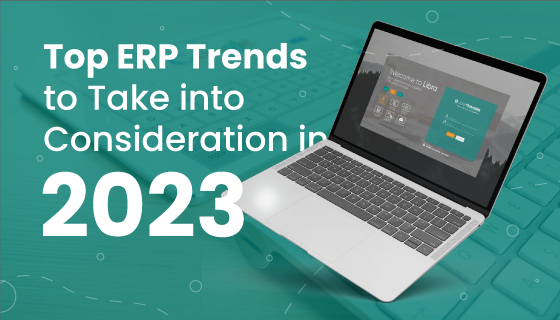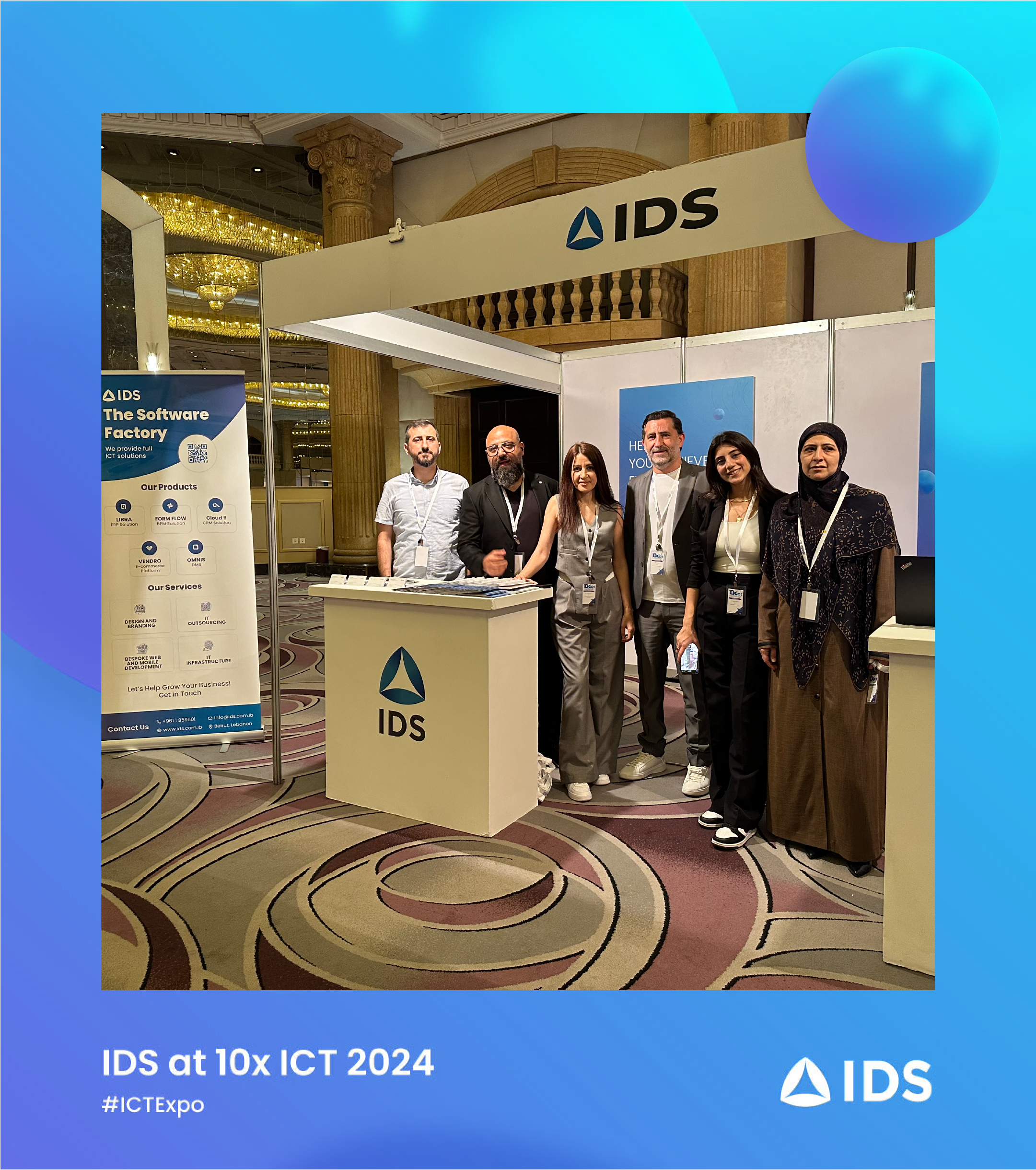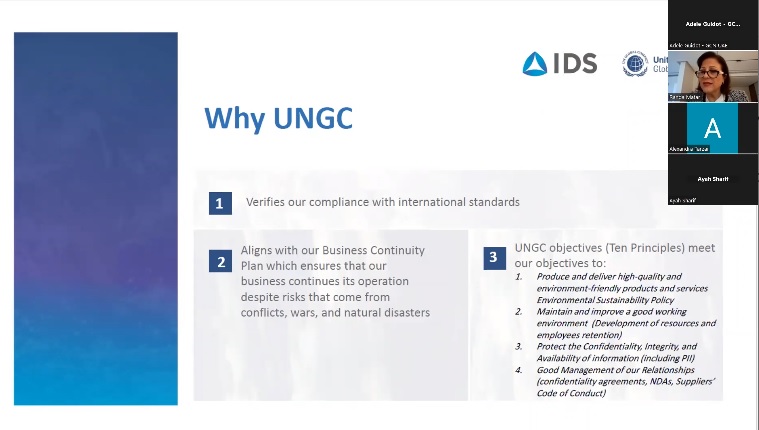
01 Feb 2023
Now that another year has passed, it’s time to look ahead to 2023 to check what is in store for enterprise technology and ERP software. The predicted IT developments for 2023 will inevitably advance the waves of digital transformation. Disruption becomes a dominating and enduring part of our reality as COVID policy, inflation, recession, immigration, and growing demand pressure and revealing new constraints.
Therefore, we will present to you some trends that are expected to continue in the ERP space in 2023:
- Continued adoption of cloud-based ERP systems: as more companies recognize the benefits of cloud–based ERP systems, such as lower upfront costs, scalability, and ease of use, the adoption of these systems is expected to continue.
- Increased focus on security: cybersecurity is expected to remain a top concern for businesses, and ERP vendors will likely continue investing in security features to protect their systems and their customer’s data.
- Greater integration with other business systems: ERP systems are expected to continue to integrate with other business systems, such as CRM, supply chain management, and HR, to provide a more holistic view of business operations.
- The rise of Industry 4.0: which refers to the integration of digital technologies into traditional manufacturing and production processes, is expected to continue to drive the development of ERP systems designed for specific industries.
- The emergence of low code and no code platforms: the use of low code and no code platforms for ERP customization is expected to become more popular, as these platforms allow for faster development and deployment of custom solutions.
Therefore, customization is expected to become more important in the ERP space in the coming years, as companies increasingly seek solutions tailored to their specific needs and processes. Standardized ERP systems may still have a place in certain industries or for companies with relatively simple processes, but the trend is towards more customized solutions. One reason for this shift is that companies are looking for ways to differentiate themselves in a crowded and competitive market. Customized ERP systems can help them to do this by providing unique capabilities and features that are specific to their business. Also, business processes and needs are constantly evolving, and companies need the flexibility to adapt their ERP systems to keep up with these changes. Customized ERP systems can be more easily modified to meet changing requirements, whereas standardized systems may require more time and effort to customize. All in all, it is expected that the trend toward customization will continue to shape the ERP landscape in the coming years, as companies seek solutions that are tailored to their specific needs and processes.
On the other hand, the integration of ERP systems with other business systems is expected to continue to be a priority for many companies in the coming years. This is because the integration of systems can provide many benefits, such as:
- Improved efficiency: by integrating systems, companies can eliminate the need for manual data entry and other repetitive tasks, saving time and reducing errors.
- Greater visibility: integrating systems can provide a more holistic view of business operations, allowing companies to make more informed decisions.
- Enhanced collaboration: integrating systems can facilitate better communication and collaboration between different departments and teams.
- Reduced costs: integrating systems can help to reduce the need for multiple systems and the associated costs of maintaining them.
Overall, the trend towards the integration of ERP systems with other business systems is expected to continue as companies look for ways to improve efficiency, visibility, collaboration, and reduce costs.
Furthermore, the adoption of cloud-based ERP systems is expected to continue growing in 2023, because it can offer several advantages including:
- Lower upfront costs: cloud-based systems require a smaller upfront investment, as there is no need to purchase and maintain on-premises hardware.
- Scalability: cloud-based systems can easily scale up or down to meet changing business
- Ease of use: cloud-based systems can be accessed from any device with a stable internet connection, making them easy to use for employees who are working remotely.
- Automatic updates: these systems are typically updated automatically, ensuring that users have access to the latest features and security patches.
- Increased security: these are typically managed by experienced professionals who are responsible for maintaining the security of the system.
Many businesses that continue to rely upon on-premise ERP are beginning to see how and why they are falling behind. The pandemic brought to light operational constraints, including rigidity and expensive scalability as well as a lack of innovation and incomplete collaboration, which caused many organizations to operate remotely and rendered on-premise solutions obsolete. The trend toward cloud-based ERP systems is expected to continue as more companies will start recognizing the benefits of these systems in 2023.
Another ERP trend that will be taking over in 2023 is Mobile ERP, which refers to the use of Enterprise Resource Planning (ERP) systems on mobile devices such as smartphones and tablets. Mobile ERP allows employees to access and update critical business information and processes from anywhere, at any time. There are several benefits of Mobile ERP, which include:
- Improved productivity: employees can access information and update systems from anywhere, which can help in increasing productivity.
- Better collaboration: facilitating better communication and collaboration between employees, even if they are working remotely.
- Greater flexibility: this allows employees to work from any location, providing greater flexibility and the ability to respond to changing business needs.
- Enhanced customer service: this provides employees with the information they need to better serve customers, leading to improved customer satisfaction.
Why Your Business Needs LIBRA Online: The All-in-One ERP Solution.
We are excited to announce the launch of LIBRA Online, our web–based ERP solution. This campaign marks a shift for our company as we move towards providing more convenient, online options for our customers. With LIBRA Online, users can easily access our solution from any device with an internet connection, just like with other popular online solutions. We believe that LIBRA Online will revolutionize the way our users manage their business processes and are eager to see the results it will bring
As a business owner, you know that staying organized and on top of your operations is crucial to your success. That’s where enterprise resource planning (ERP) solutions come in. These powerful tools help you manage everything from financials to the supply chain, all in one place.
But with so many ERP options on the market, how do you choose the best one for your business? Look no further than LIBRA Online, the premier ERP solution by IDS.
Here are just a few reasons why your business needs LIBRA Online:
- Access from anywhere: LIBRA Online is a web-based solution, which means you can access it from anywhere with an internet No more worrying about being tied to a specific computer or location.
- Scalability: as your business grows and evolves, so too will your ERP LIBRA Online is designed to grow with you, offering scalable options to meet the changing needs of your business.
- Streamlined Operations: With LIBRA Online, you will be able to manage all of your business operations in one central location. From financials to the supply chain, everything is streamlined and easy to access.
- Customization: Every business is unique, and LIBRA Online recognizes that. Our solution offers customizable options to ensure that it meets the specific needs of your
- Expert Support: When you choose LIBRA Online, you’re not just getting an ERP solution, you’re also getting access to our team of experts. We’re here to help you every step of the way, from implementation to ongoing support.
- Integration: LIBRA ERP system integrates easily with your existing software. Also, LIBRA comes with a suite of mobile applications including LIBRA Lines for production centers, INVO Portable Sales Platform, and LIBRA Showroom for salespeople inside showrooms.
Don’t waste any more time managing your business operations with multiple tools and systems. Choose LIBRA Online and streamline your operations with the all-in-one ERP solution. Learn more and get started by visiting LIBRA website! Click here





